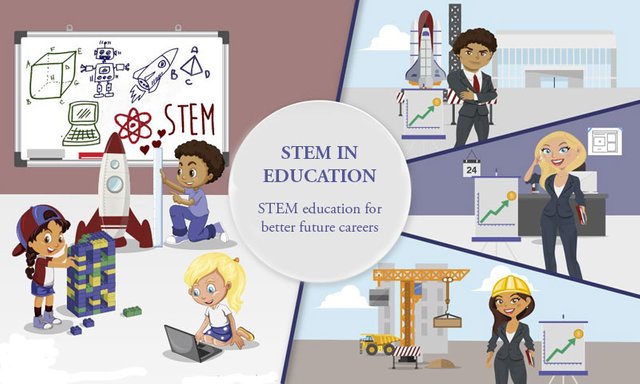What is STEM and why is it important?
STEM – seems that’s everyone’s favorite buzzword lately and for a good reason. But what does it mean? STEM is an acronym for Science, Technology, Engineering and Math and it’s becoming an increasingly important topic in Early Education.
WHY STEM?
It’s easy to see why is there so much interest in this area. Many of today’s most prestigious professions have roots in STEM, from robotics and AI to neuroscience and biochemistry.
We frequently hear how AI revolution is near, and that machines will take over many of our jobs. In many types of work, automatization is already here. That can seem scary, but as with every innovation in human history, we will adapt to these changing needs. The world will still need innovators, creators, critical thinkers, people who possess both technical and creative skills.
STEM IN EDUCATION
Before STEM, there was METS - but this acronym never got much public attention. Peter Faletra, director from the Office of Science division of Workforce Development for Teachers and Scientists suggested the change to STEM. The first mention of STEM was in 1998. in a form of STEMTEC which was Science, Technology, Engineering and Math Teacher Education Collaborative. The aim of this initiative was to improve school curriculum, particularly regarding STEM topics. It’s been noticed that our school system is outdated and does not follow trends in the employment sector. Problem solving, teamwork and critical thinking are skills wanted by every employer, but we don’t include them in our curriculum.
The idea of lifelong learning and learning for the sake of knowledge, not grades is something also missing from our school system.
Kids love to learn, they do it pretty much 24/7, every new concept, every success or failure leads to some modification, some insight. They are really like little sponges, always observing their environment and soaking in knowledge and guidance of adults around them. You can see a spark in their eyes when they understand some new concept or try some new skill.
When and why do we lose that? It’s hard to believe how a system can make those same children not just stop doing what they used to love, but actively dislike, even start to hate learning. There is so much focus on memorization and repetition, pure facts and breadth of knowledge, correctness and achievement that there is a constant fear of failure. With constant pressure to do better, there is just no time for experimentation and fun in learning.
IMPORTANCE OF STEM
We need to support our children to explore freely, without fear of failure, but with the curious and observant mind. We need to let them experiment and to learn from tries and modifications. We need to let them discover important scientific principles through play and not some dusty old books. Most importantly, we need to be right there with them to model joy and fulfillment of learning new things and applying that knowledge in our life.
That’s why STEM activities are so important, they bring the pure joy of discovery and learning not only to our kids, but to us adults too.
Seeing that spark in their eyes when after five failures they finally „get it“, will probably teach us something about the importance of not quitting on a first problem. We can learn math, we can code, we can do science, we can build things… All that are amazing skills, but what is even more important is that we will develop a growth mindset. We will know that sometimes all you need is to reframe the problem. Or just talk to somebody or even just relax for a few minutes.
There is not just one correct answer, there are many, some better than the others. But that willingness to explore options is what defines creative thinkers. Brainstorm, be ready to go in the wrong direction, ask others for their opinion… Fail faster! Without exploring “wrong” ideas, how will you know which are right? That is what future demands and that is what we need to teach now.
STEM OR STEAM?
If you already searched for STEM, you probably ran into term STEAM. No, we are not talking about biggest digital video game distribution platform owned by Valve Corporation. STEAM is a program that integrates art and design into STEM formula. STEAM education programs aim to teach us how to develop engineering and design approach to solving problems while using our mathematics and science knowledge.In other words, A as Art in STEAM encourages creative thinking and finding solutions in creative ways.
JOB OUTLOOK
By predictions, STEM field jobs will rise by 30% in 2024. But that trend is already visible today. Technology is making various jobs obsolete and that will only continue. But how do we create that technology? You need Math to do Science. And Science to create Technology. And that technology is only good if you can Engineer a working product that will do what we want it to do. And in all that, there is an important place for design thinking and making products not only usable but a joy to use.
Do you see now why is so important to involve kids in STEM education as soon as possible? If you want to dig deeper into STEM, check out Exploring STEM Fields where we talk about individual fields in more detail.
You can find more information about what is STEM in Science, technology, engineering, and mathematics.

